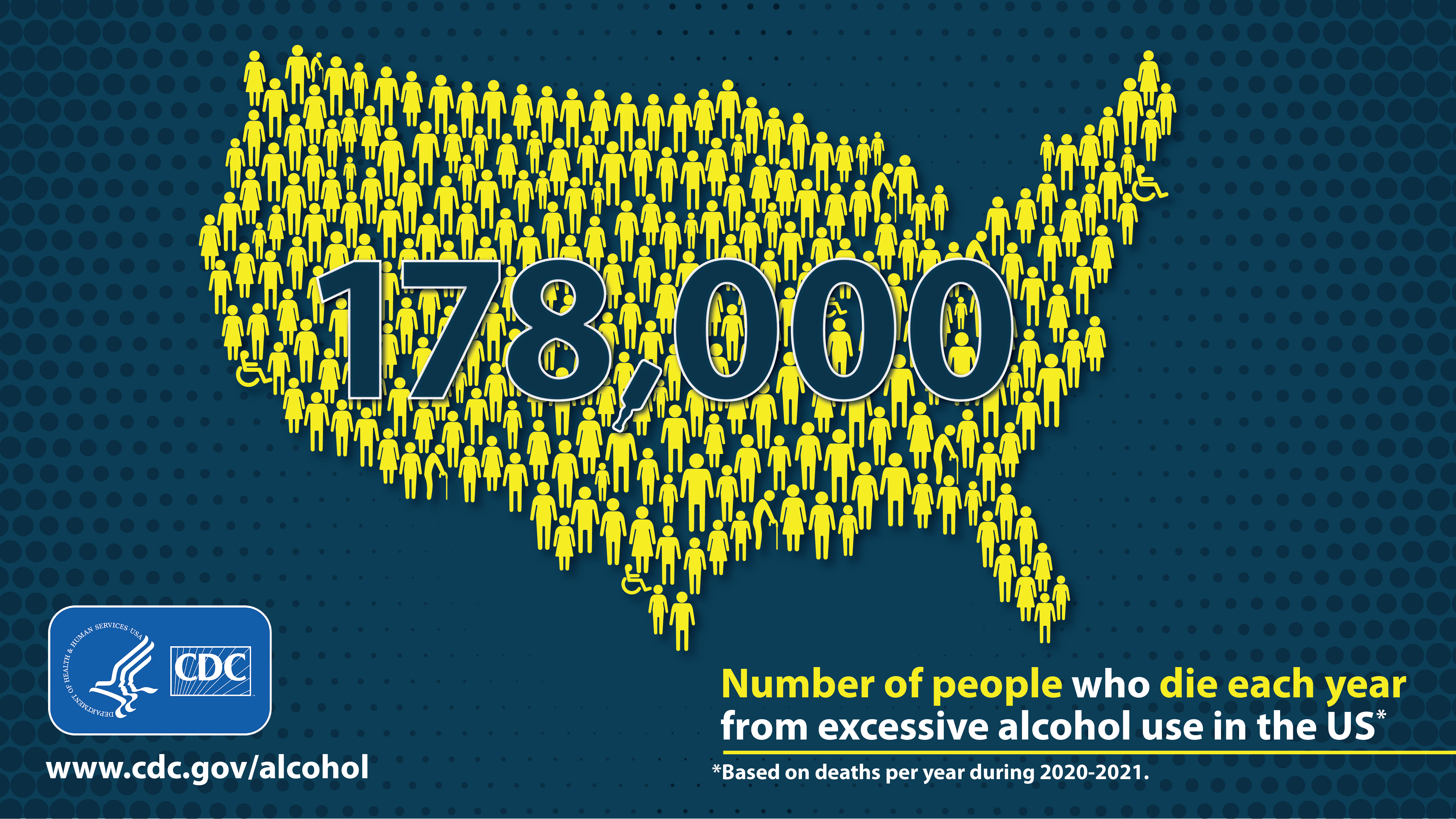Key points
- Excessive alcohol use has harmful effects on the people who drink and those around them.
- Policies that make alcohol less available and less affordable can prevent excessive drinking and related harms.
- Individuals, organizations, communities, and states can support proven solutions to reduce alcohol-related harms and improve health and safety.

Overview
Protect health by preventing excessive alcohol use
- Excessive alcohol use:
- Is a leading preventable cause of death.
- Impacts everyone, especially families and friends.
- Is a leading preventable cause of death.
- Preventing excessive alcohol use can protect everyone's health.
Key ways alcohol policies protect everyone's health
Proven alcohol policies can reduce excessive drinking and its harmful effects like illness, injury, and risk of dying sooner. They can do this by making alcohol:
- Less available.
- Harder to access.
- Higher in price.
The policies can promote positive social norms that support people in drinking less.
Alcohol policy landscape in the United States
- Effective alcohol policies are not evenly implemented and enforced in the U.S.
- Some communities have more alcohol-related harms than others.
- Implementing and enforcing proven alcohol policies more widely could help every community:
- Improve health and well-being.
- Save lives.
- Improve health and well-being.

How strategies to prevent excessive drinking work
Proven strategies to prevent excessive alcohol use can create environments that promote health and well-being.
Policies that make alcohol less available
Laws that set limits on the number and distance between places that sell alcohol can discourage excessive drinking.

- People tend to drink less when they’re not around places that sell, promote, or advertise alcohol.
- Setting limits on places that sell alcohol can create opportunities for other businesses or organizations. This allows them to open and grow without increasing alcohol-related illness, injury, violence, and crime.
- We can improve everyone's health, well-being, and safety by making alcohol less available in communities.
Policies that make alcohol harder to access
Governments can also limit the days and hours when alcohol can be sold. This reduces access to alcohol and lowers its harmful effects on communities.
Policies that make alcohol prices higher
Alcohol pricing policies can also help.
- When alcohol costs more, people generally buy and drink less.
- Raising the prices of low-cost alcoholic beverages has been shown to reduce alcohol-related deaths.
- If taxes on alcohol rise, funds could be another resource to help pay for health programs and other community needs to prevent alcohol-related harms.
- Higher alcohol taxes can also reduce underage drinking and excessive alcohol use among adults. It can save lives.

Resources
- Proven ways to prevent excessive alcohol use and related harms:
- These strategies work in states and communities.
- These strategies can support young people's development by reducing underage drinking.
- These strategies work in states and communities.
- Individuals can protect their own health and support others in drinking less.
- Esser MB, Sherk A, Liu Y, Naimi TS. Deaths from excessive alcohol use — United States, 2016–2021. MMWR Morb Mortal Wkly Rep. 2024;73:154–161. doi: 10.15585/mmwr.mm7308a1
